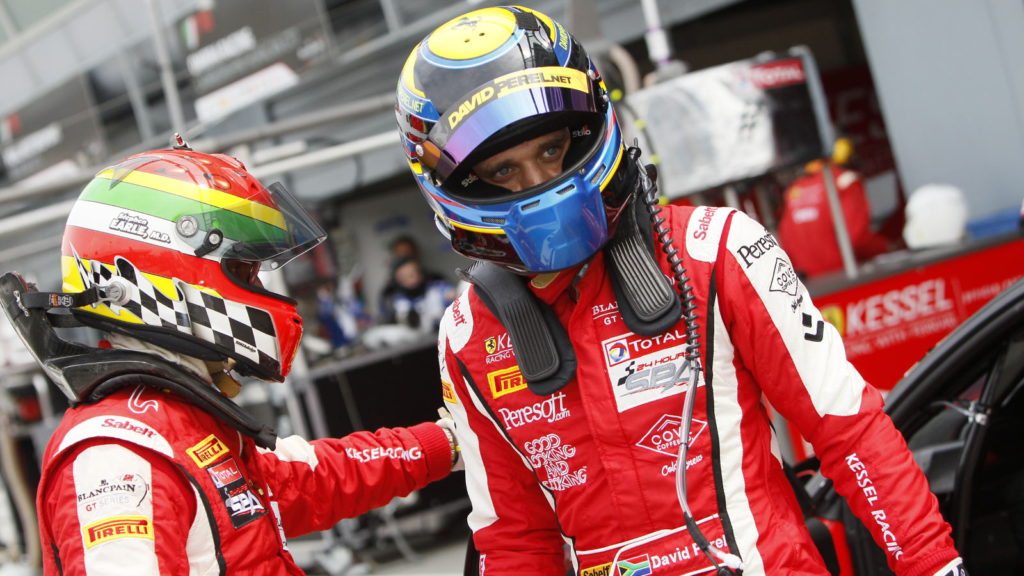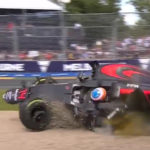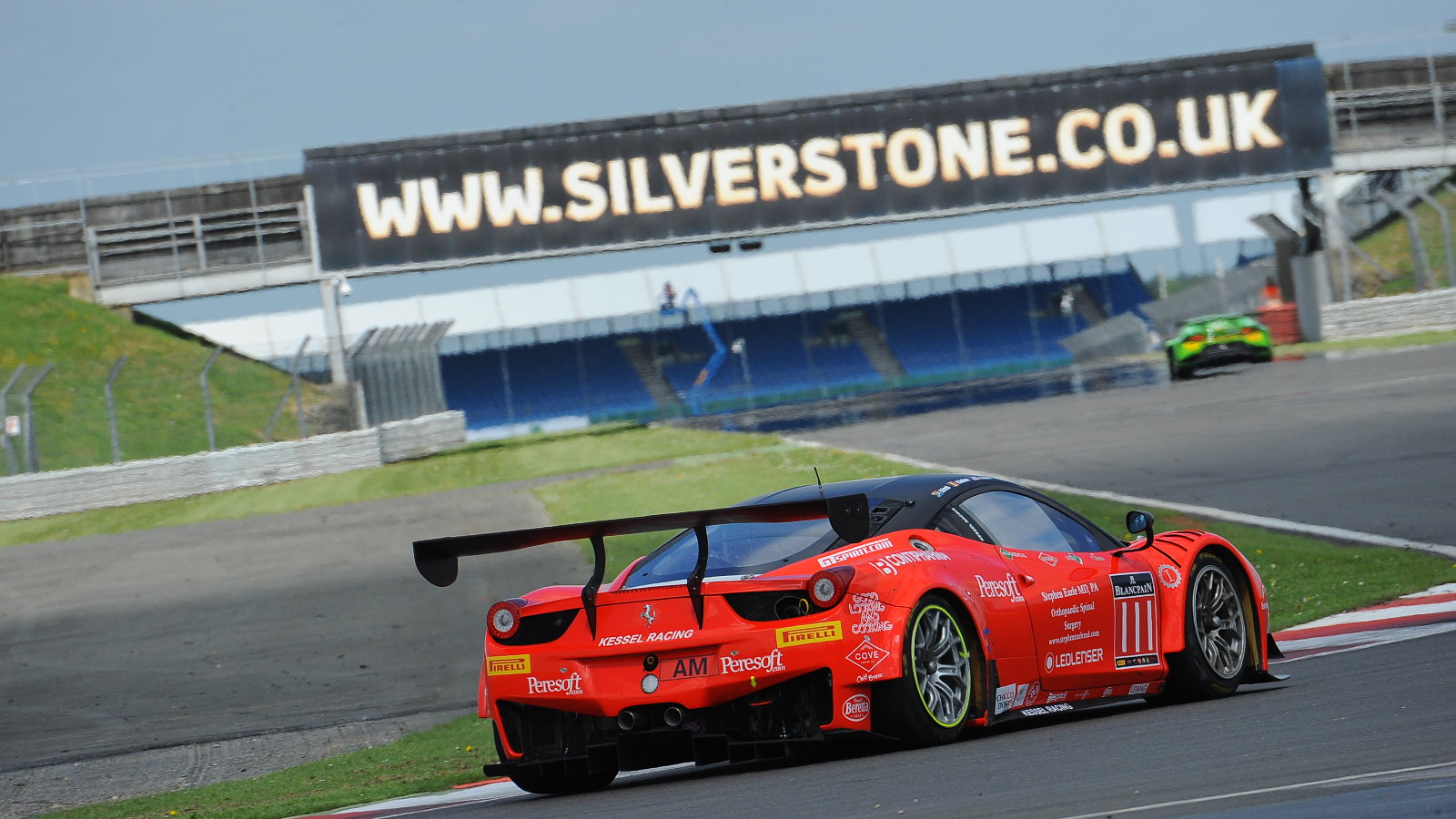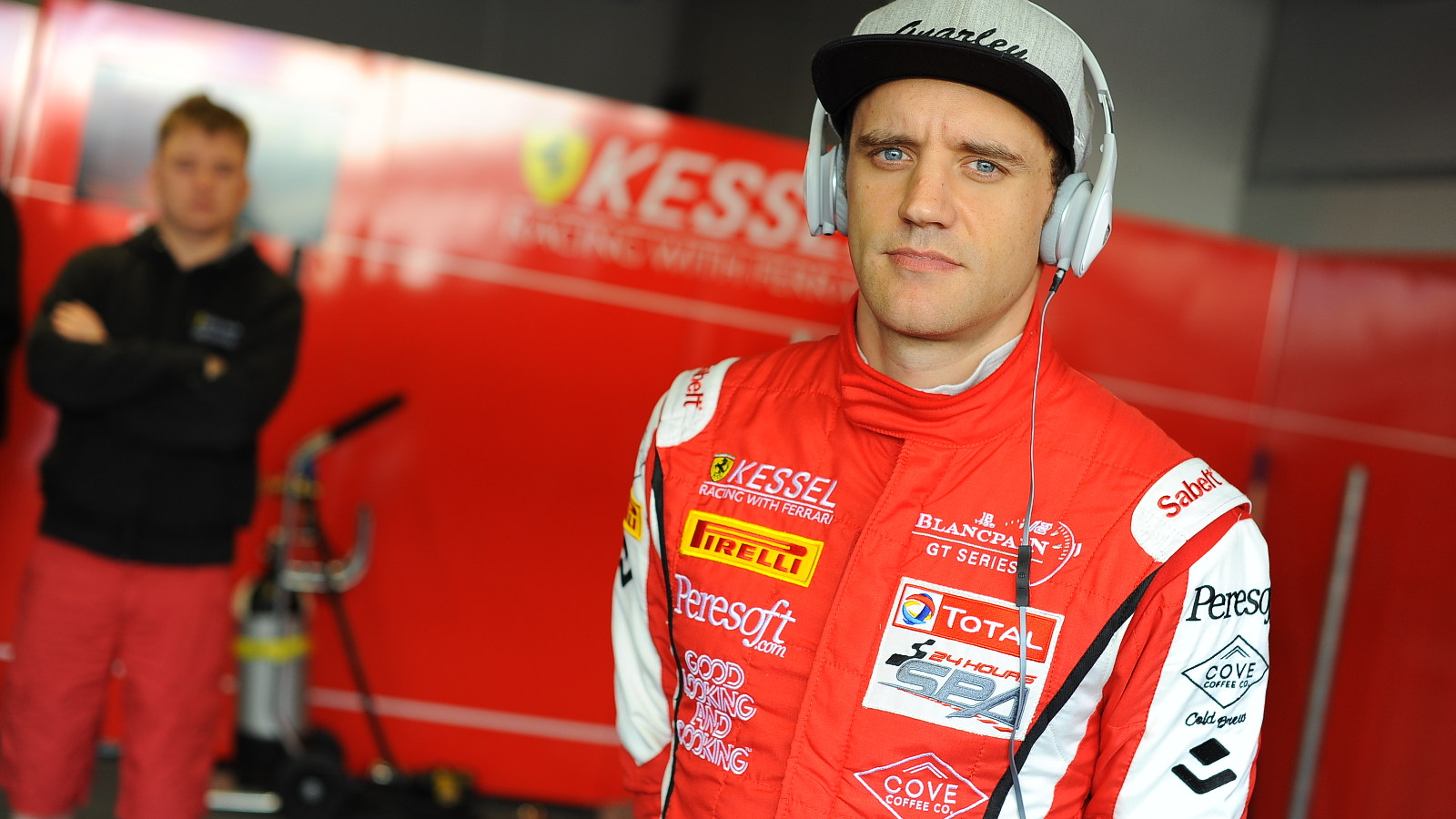South Africa does not need the biggest computers in the world to compete globally. It needs smarter ways to use the computing power it…
David Perel: interview with SA’s Blancpain GT racer

When it comes to the SA racing scene, there are a few prominent drivers making a name for themselves overseas.
One of the standout racers in this regard is David Perel, having finished second in the 2015 Italian GT series and competing in the Blancpain GT Series Am Division. We interviewed Perel via email, covering local obstacles to racing, Forza versus Gran Turismo and much more.
Hadlee Simons (HS): What challenges are there for aspiring and budding racers from an SA perspective?
David Perel (DP): Primarily it’s a case of finding the necessary budget to go racing. When you are a rookie you need to pay the teams to race, and initially you’re looking at R1.5-million to R3-million per season for GT3 racing. There are plenty of paths to climb the ladder, though the younger you start the better. For anyone interested in getting involved I recommend buying a kart and starting from there. That’s what I did when I was 15 years old.
HS: What challenges are there from a global perspective?
DP: The level of competition on an international level is unbelievable and I mean that sincerely. You are literally racing against Le Mans winners, DTM champions and even F1 drivers. The grids are filled with up to 65 cars and the top 30 cars can be separated by just one second in qualifying. Teams get to cherry pick the best talent from a massive pool of good drivers, so best you be on your A-Game every time you leave the pits. It’s a bit of a shock the first time you race at that level, but hugely satisfying too.
HS: To settle the console racing war! Which is better for acclimatisation to racing circuits – Forza or Gran Turismo? Further to that, do you make use of any video games to acclimatise yourself to a track? I know iRacing is big in the community but do you find the more casual experiences to do a good job as well?
DP: Gran Turismo is by far the best game at the moment when it comes to accurate representation of tracks. I know this for sure as I’ve driven many of the tracks in real life. Forza is great when it comes to car design and sounds. iRacing is good because it’s incredibly competitive and there’s a live online race every hour. I primarily use Gran Turismo and iRacing for training and have done so long before it was considered cool or useful. I used to use Gran Turismo 2 as a way to learn different racing lines and everyone laughed at me…
David Perel adds that Gran Turismo is better than Forza when it comes to recreating tracks
Back in the day I took part in the second Gran Turismo Academy and finished third out of a million entrants but didn’t qualify because I was based in South Africa. Guess what? I race against the winners of GT Academy now and have had the pleasure of beating them on track.
HS: Are there any standout tracks in particular where you were on the pace straight away as a result of the gaming?
DP: When I arrived at the Silverstone F1 track I was third quickest on my first flying lap. I credit that 100% to Gran Turismo 6, their track design was so accurate.
HS: Of course, the Blancpain GT series is one of the top disciplines in the world, given the endurance nature of it all. Are there any different approaches to endurance compared to traditional racing? Does the old adage of driving slowly and preserving everything still hold true here?
DP: In endurance racing the primary objective to achieving a good result is to avoid unnecessary pit stops. So you need to avoid trouble as much as you can. That doesn’t mean you drive slowly though, we’re still flat out for up to 24 hours but instead of driving at 105% we are just below 100%. It’s a big difference to sprint racing which is flat out until the flag drops. It’s also quite tiring, a two hour stint in a 50-60 degree Celsius cockpit is tough.
HS: You’re also going to be doing the Spa 24 Hours [oops, he did it this year – ed]. What do you expect to be your biggest challenge? Do you think you’ll actually be able to sleep between stints?
DP: I competed in my first Spa 24 Hour this year actually. I knew it was going to be tough but it turned out to be ten times more difficult than I anticipated. The emotional roller coaster is unbelievable. In the fifth hour we were leading and I was getting ready to get into the car and extend the gap when I saw on the TV that the car was in the wall! We ended up losing ten laps while they recovered the car. From then on the battle to stay sharp and motivated was the hardest thing I’ve ever experienced.
I slept 1.5 hours between 2am and 3.30am. The team woke me up in a panic and said “Mate, you have three minutes to get into your suit, you’re up next.” I bolted to the pits to get my suit only to find it had been moved! I was literally still zipping up when the car stopped for the pitstop. It was intense. From there it was an awesome experience, racing from 4am to 6am is probably the best thing I’ve ever experienced in a race car. It’s just you and the car for two hours, and it’s strangely quiet. I loved it.
HS: You can’t mention endurance without Le Mans. Any ambitions of a GT or LMP drive?
DP: My ultimate dream is to race in Le Mans. It’s why I started my journey to become a GT driver two years ago. My team actually won their class in the Le Mans this year, so I’m hoping we’re not far off. I speak to my manager about it all the time. I desperately want to do the race.
HS: I’d be remiss not to ask if F1 is a goal for you?
DP: It was, but I’m way too old now. If you’re 22 and still in South Africa then consider your F1 career over. You need to be in Europe from a young age, winning consistently and with a massive amount of cash available to climb that ladder. My goal is to race in Le Mans, which is incredibly difficult on its own.
I still have a dream of driving a Formula 1 car though. That’s not impossible but racing one is out of the question.
HS: We seldom hear of SA guys making it big overseas (be it in F3, touring cars or other disciplines), with guys like Jayde Kruger and Roman de Beer seeing success recently. Do you think it’s just a case of the SA public not being fans of motorsport? Is it an issue of exposure? More issues?
DP: It’s mostly because we cannot afford it. To compete in F3 you need a budget of R10-million just for one season. GP2 (one step below F1) is double that. We have the talent but we don’t have the financial backing. In a way it’s understandable, but it doesn’t make it any easier. I spent my entire life’s savings and sold everything to get to where I am today. Not many people can, or are willing, to do that.
Of course exposure obviously helps and we are working really hard to put motorsport in the spotlight more often.
HS: Further to that, are there any particular South Africans that stand out as fantastic young talents to watch?
DP: There are a few. Off the top of my head, both the Kelvin and Sheldon van de Linde, Jordan Pepper, Raul Hyman. Then locally there are so many good kids racing at the moment, they just need to bite the bullet and get on the plane to Europe so they can expose themselves to the big teams.
HS: What do you think can be done to alleviate the issue of funding/sponsorship cash? Do you think the government can step in? Is it feasible for a major fund of sorts to be created?
DP: I am not sure, help from the government would help, of course, but there’s no direct path to become a professional racing driver, which can make things unpredictable for big bureaucracies.
Perel reckons that social media has become a big enabler for motorsport
These days racing drivers have the control to expose themselves through social media and I think a big part of it rests in our hands. That’s not easy but as long as motorsport isn’t mainstream, it’s up to us to make it so.
HS: What are your thoughts on initiatives like the GT Academy by Sony and Polyphony Digital? We’ve seen some success stories like Jann Mardenborough, for instance.
DP: I’m a huge fan of it, my only (selfish) complaint is when I didn’t qualify in 2008 or 2009. Full credit to Gran Turismo and Nissan for creating such a brilliant opportunity for aspiring drivers. It was my performance in the GT Academy that gave me the belief that I could take it to anyone on the world stage.
HS: Of course, Formula E is gaining traction lately. What do you make of it?
DP: It’s inevitable that electric racing will be the most popular form of motorsport in the future. I say full credit to the organizers of Formula E for making it a reality. I wish I could compete in the series, it’s filled with full-time professional drivers and is huuuuugely competitive.
HS: What’s in the pipeline for 2017? More Blancpain of course, but can we expect DTM and/or WEC as well?
DP: I have another two years with Kessel Ferrari. I am hoping we keep racing in the Blancpain GT Series, the target is to do both the Endurance and Sprint Championships. I have tested a DTM car but it’s unlikely that I’ll get that opportunity again. And finally, depending on a few technical factors, WEC is not out of the question in GTE-AM. That would be thrilling!
You can keep up to date with David Perel via his website, Twitter account, Facebook page, Instagram account and YouTube channel.
Article images: Supplied



